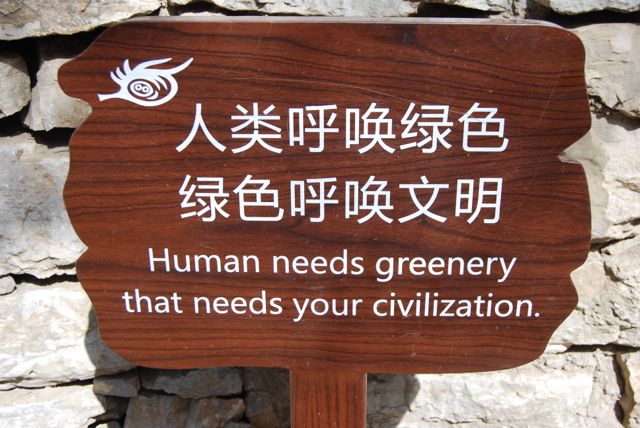Countries, Nationalities, and Languages in Chinese Posted by sasha on Jan 28, 2016 in Uncategorized
Over the past few months, we’ve had a lot of Chinese geography lessons. In case you missed them, here are the links to those posts:
- All 50 US States
- Canadian Provinces, Territories, and Cities
- European Countries
- North American Countries
- South American Countries and Capitals
- Asian Countries
Now that we’ve learned so many names for countries, states/provinces, and cities, I figured it’s a good time to review how to talk about where you’re from, your nationality, and the language you speak.
Countries

中国 🇨🇳
As a foreigner in China, people always want to know what country (国家 – guó jiā) you’re from. In fact, this is probably the #1 question you’ll be asked if traveling/living in the Middle Kingdom. If you go back and study the previous posts with the Chinese names for various countries, you’ll notice that the character 国 (guó) comes up again and again:
-
USA (美国 – měi guó)
-
England (英国 – yīng guó)
-
South Korea (韩国 – hán guó)
-
Thailand (泰国 – tài guó)
A lot of Chinese names for countries use the character 国 as a short form of 国家. Other Chinese names for countries are more of a transliteration; i.e. the Chinese name uses characters that sound like the actual name. Go back and review the previous posts and you’ll see plenty of those:
-
Canada (加拿大 – jiā ná dà)
-
Ecuador (厄瓜多尔 – è guā duō’ěr)
-
Finland (芬兰 – fēn lán)
-
Italy (意大利 – yì dà lì)
How can you ask/answer about where a person is from? Here are some common questions and the corresponding answers:
你是哪个国家的? (nǐ shì nǎ ge guó jiā de)
Which country are you from?
我是… 的 (wǒ shì… de)
I’m from…
你来自哪里? (nǐ lái zì nǎ lǐ)
Where are you from?
我来自… (wǒ lái zì)
I’m from…
To answer those questions, simply add the name of your country after the …
Nationalities

我是美国人
Learning nationalities in English can be a bit complicated. For some countries, you add -an (American, Korean, Australian), for others you use -ese (Chinese, Portuguese, Japanese), and so on. Thankfully, it’s much easier in Chinese – simply add the character for person (人 – rén):
-
Brazilian (巴西人 – bā xī rén)
-
German (德国人 – dé guó rén)
-
Indian (印度人 – yìn dù rén)
-
Mexican (墨西哥人 – mò xī gē rén)
To say your nationality, it’s quite simple:
I’m… (我是…人 – wǒ shì… rén)
Languages

Chinese + English = Chinglish
When it comes to talking about languages (语言 – yǔ yán), interestingly enough the most difficult one to talk about in Chinese is… Chinese. There are quite a few Chinese names for the Chinese language:
-
中文 – zhōng wén
-
汉语 – hàn yǔ
-
中国话 – zhōng guó huà
Of course, when it comes to speaking Chinese, there are many different variations you could be talking about. The two most common are:
-
Mandarin (普通话 – pǔ tōng huà)
-
Cantonese (广东话 – guǎng dōng huà)
Thankfully it’s a bit easier when you’re talking about other languages. For pretty much any other language, you’ll use the character 语 (yǔ):
-
English (英语 – yīng yǔ)
-
French (法语 – fǎ yǔ)
-
Portuguese (葡萄牙语 – pú táo yá yǔ)
-
Spanish (西班牙语 – xī bān yá yǔ)
As you can see, some languages use a shortened form of the country name, while others use the whole name. Here’s how you would ask/answer about what language you speak:
What languages can you speak?
你会说什么语言? (nǐ huì shuō shén me yǔ yán)
I can speak…
我会说… (wǒ huì shuō…)
After studying this post, you should be able to confidently ask and answer about countries, nationalities, and languages in Chinese. What other topics would you like to learn about here on the blog? Leave a comment and I’ll do my best to get to your requests as soon as possible.

Build vocabulary, practice pronunciation, and more with Transparent Language Online. Available anytime, anywhere, on any device.
About the Author: sasha
Sasha is an English teacher, writer, photographer, and videographer from the great state of Michigan. Upon graduating from Michigan State University, he moved to China and spent 5+ years living, working, studying, and traveling there. He also studied Indonesian Language & Culture in Bali for a year. He and his wife run the travel blog Grateful Gypsies, and they're currently trying the digital nomad lifestyle across Latin America.




Comments:
atunde damilola:
i need a chinese teacher who speak English.
gineen:
thanks for the great post on countries…can you give any suggestions on how to get the tones right? i studied as hard as i could, but i couldn’t ever do well enough to please my chinese teacher…my tones need improvement! maybe a list of english words that sound like each tone…maybe they are just too subtle for me to ever get!!! i took 2 semesters of mandarin in college